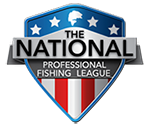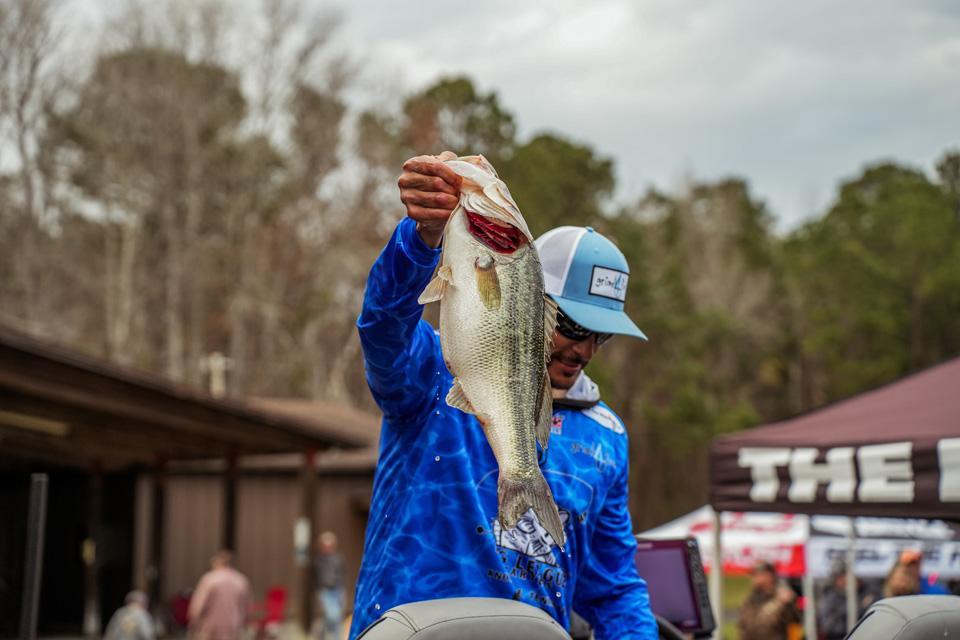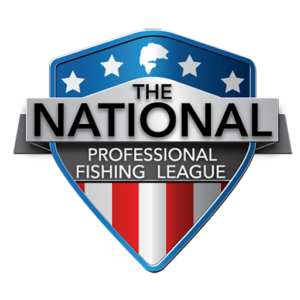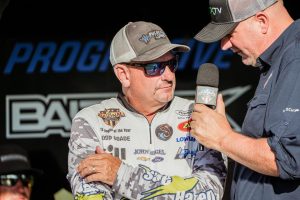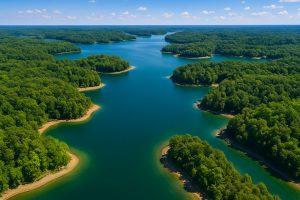Story by Robert Wroblewski | Photos by Tanner & Travis Lyons
Stop 5 of the 2025 National Professional Fishing League season is finally here, and we’re heading north—all the way to Massena, New York, on the world-famous St. Lawrence River. This is my first time fishing in New York, and ever since this event was announced on the schedule, I’ve been counting down the days. It’s been one of those bucket list fisheries for me, and now it’s “go time.”
That said, this one carries a lot of weight. I’m currently outside the cut for the 2026 NPFL Championship, and that means I can’t afford a single misstep. To punch my ticket to the championship, I probably need to average a 42nd-place finish or better in the final two events of the season. This stop is crucial. It could make or break my year—maybe even my career. But I welcome that pressure. These are the moments I live for.
Now, I’ll be the first to admit that I have no prior experience on the St. Lawrence River. I wasn’t handed any helpful info before cutoff, and I don’t have any local honey holes saved up. I’m going in with a clean slate, but also with a completely open mind. This isn’t the first time I’ve tackled a fishery blind, and it won’t be the last. The difference is, I’m prepared to adapt, and I’ve built a career off adjusting under pressure.
While I haven’t been to the St. Lawrence, I do have extensive experience fishing for smallmouth bass on big water. Over the years, I’ve fished four out of the five Great Lakes—Lake Huron at Saginaw Bay, Lake Erie at Sandusky, Lake Michigan’s Traverse Bay, and now I’ll be adding Lake Ontario to the list. So even though the river is new to me, chasing smallmouth on deep, clear, current-driven water is not. I’ve been there before, and I know what these fish do.
But there’s one major twist in 2025: Forward-facing sonar is prohibited in the NPFL. That changes the game entirely … especially on a fishery like this. In the past, the guys who dominated up here did so with FFS. Now that it’s gone, the playing field is a lot more even, and honestly, that’s a good thing for someone like me. I’ve always had confidence in my ability to fish with my eyes, and I don’t just mean reading the water. I mean actual sight fishing. I’ve got 20/20 vision, I’m comfortable with a flogger, and I trust my instincts. I’ve caught a lot of fish over the years just by reading behavior, light angles, shadows, and subtle movements … the old-school way.
I expect most of the field to be throwing the standard smallmouth lineup—drop shots, Ned rigs, jerkbaits, topwaters—and I’ll have all those tied on, too. Carolina rigs might play as well, especially in current seams or slower eddies. If the river lays down, a lot of guys will be drifting and dragging finesse baits in deeper water. If it blows hard, the tournament directors might keep us inside the river. If that happens, largemouth could come into play in certain areas.
One of the biggest strategic decisions will be about the run. We’re launching out of Massena, which is as far east as it gets on the U.S. side. If you want to make the long run west to Lake Ontario or toward more productive zones, you’re looking at burning hours of your day just in travel. You might even have to fuel up twice depending on how far you push. That’s a huge gamble. Is the juice worth the squeeze, or can you find what you need closer to the ramp? I’m still working through that plan, and it’ll depend a lot on what I find in practice.
The good news? We’ve got long summer days and three full days of practice ahead. That gives us potentially 45-plus hours on the water to break things down, experiment, and figure out the puzzle. Also, the Canadian side of the river opens up Saturday—one day before official practice. That means those fish have been left alone for a while, and it could be a gold mine if the conditions line up right. The big question is: Are they still spawning? Are they post-spawn? Are they cruising shallow or pulling out to deeper structure? We won’t know until we get out there, but I plan to cover water and find out fast.
There’s a lot of talent in this field. Some of these guys have fished here before, and a few have won major events on this body of water. But many of them relied on FFS to do it. That tool is off the table now, and that gives guys like me a real shot to do well.
From here on out, every cast matters. This is the test—right here, right now. If I want to make the Championship and take my career to the next level, it starts with how I perform this week on the St. Lawrence. It’s time to lock in, dig deep, and make a statement.
Let’s get to work.
Robert Wroblewski – Angler Profile
